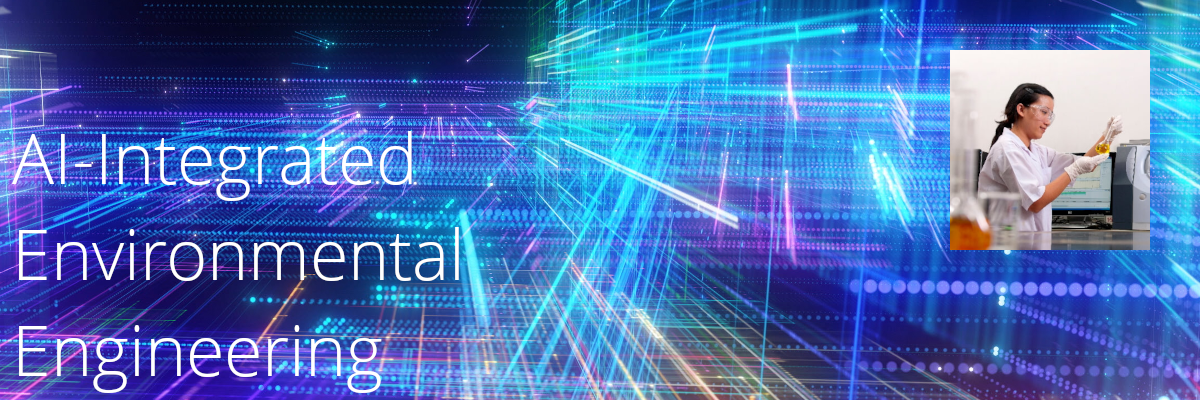AI-Integrated Environmental Engineering

AI-Integrated Environmental Engineering at Kasetsart University
Fast-Track 4+1 Program offers students the opportunity to complete a bachelor’s degree in Environmental Engineering within four years while simultaneously building a foundation in Artificial Intelligence (AI). By continuing for one additional year, students graduate with a master’s degree in AI. This program emphasizes the integration of environmental engineering knowledge with advanced AI technologies to address complex environmental challenges, such as pollution control, resource management, and sustainable planning. Students develop skills through interdisciplinary projects using real-world data and gain valuable experience from internships or research with industries and international institutions. The program provides a strong foundation for producing next-generation environmental engineers equipped with AI expertise and leadership in sustainable solutions.
Program Overview
This track is part of the AI-Integrated Engineering Program (AIEP). It is offered as a special collaboration with the Department of Environmental Engineering.
- Bachelor’s Program: Bachelor of Engineering in Environmental Engineering (International Program)
- Master’s Program: Master of Engineering in AI-Integrated Engineering (Regular Thai curriculum)
- First intake: Academic Year 2026
- Number of Students: 10
- Eligible Group: International Undergraduate Program (IUP)
- Admission Channels: TCAS1 (Portfolio), TCAS2, TCAS3 (Admission)
Program Highlights
Fast-Track 4+1 Pathway
-
4 years: Bachelor’s in Environmental Engineering with integrated AI foundation
-
+1 year: Master’s in AI-Integrated Engineering
Program Goals
- Integrate environmental engineering with modern AI technologies
- Apply AI to solve complex environmental problems
- Focus on pollution control, efficient resource management, and sustainable planning
Learning Experience
- Interdisciplinary projects using real-world datasets
- Industrial internships and international research collaborations
Sample Capstone and Research Topics
- Real-time environmental monitoring and alert systems
- Intelligent pollution treatment systems
- AI-based carbon footprint assessment for production processes
- Predictive water quality modeling for rivers and communities
- Smart waste sorting using computer vision
- Air pollution trend analysis and forecasting
- AI-driven wastewater quality analysis for pollution control strategies
Industry & Research Partners
- Pollution Control Department
- Department of Industrial Works
- Department of Climate Change and Environment
- International partner universities
- Industrial and manufacturing sectors
4+1 Pathway
- Students must meet academic requirements by their 3rd year by taking AI foundational courses.
- Students start enrolling Master’s courses also in the 4th year. (See information for the M.Eng in AI-Integrated Engineering program.)
- 4th-year project linked to Master’s research in the 5th year.
- Two degrees (B.Eng. + M.Eng.) in 5 years for future professionals.
The detailed study plan will be available soon. Read more about the undergraduate AI core courses and the Master program.
Career Opportunities
Graduates of this program will be prepared for diverse and forward-looking careers, such as:
- Urban Environmental Planner with expertise in AI + GIS
- Environmental Engineer specialized in AI applications
- Environmental Data Analyst
- Smart Environmental Systems Developer
- AI-based Environmental Pollution Modeler and Forecaster
- Entrepreneur in Environmental Innovation and Digital Technologies
- Researcher in Green Tech and AI for Environmental Solutions
Competitive Advantages
- Real-time problem solving using sensors, satellite data, and digital twins
- Multidisciplinary learning with hands-on AI applications
- Pathway to careers in sustainability, innovation, and intelligent infrastructure
Enrichment Activities
- Summer bootcamps on AI for Sustainable Development Goals (SDGs).
- Joint hackathons and innovation challenges with industry partners.
- Exchange programs or virtual research collaborations with global universities.
- Industry internships focused on AI applications in engineering problems.
- AI x Engineering senior showcase (Capstone Exhibition Day)
AI Foundation Courses (Undergraduate Level)
Students will take the following courses during their first 3 years as undergradute students.
- Applied AI for Engineering (01204162)
- Mathematical Foundations for AI Engineers (course under development)
- Programming Concepts for Data Processing and Analysis (course under development)
See course descriptions.
Equivalent internal courses from Environmental Engineering may be submitted for equivalency review.
Distinctive Graduate Outcomes
Graduates of the AI-Integrated Environmental Engineering track will be able to:
- Use AI to make environmental systems more predictive, adaptive, and sustainable
- Analyze and simulate urban and ecological systems using large-scale geospatial and sensor data
- Recommend effective environmental policies based on model-based evidence and scenario testing
- Be capable of designing intelligent systems for water and air quality forecasting
- Develop a modern perspective aligned with Smart Cities and SDGs
- Be prepared for advanced research, innovation, and entrepreneurship in Green Tech and AI for Environment